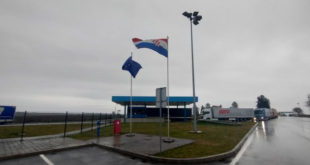A parcel containing a hand grenade and a letter warning against further reconciliation with Serbia was sent to the Croatian Embassy in Berlin on Monday, 17 January, ahead of Croatian President Ivo Josipovic’s visit to Germany, which began today, 19 January.
According to Croatian media reports, Josipovic said ‘such threats cannot and should not affect’ his duties, including his trip to Berlin. The Croatian president told media that the threat had come from ‘extremist circles’ that have no interest in Croatia’s efforts to join the European Union.
Indeed, Croatia and Serbia have taken significant steps in recent years to improve relations, with 2010 being a particularly notable year for reconciliation efforts designed to boost both countries bids to join the EU.
As ISA Intel reported previously, in November last year, Serbian President Boris Tadic and Josipovic met in the Croatian cities of Vukovar and Osijek to pay their respects to both Croatian and Serbian victims of the war. Because of the joint nature of this effort and the fact that victims from both sides were honored, it went over fairly well among the Croatian and Serbian publics, and could be viewed as a major diplomatic coup and the closing of an important chapter in bilateral relations.
Following on this, the international community urged the two sides to drop their lawsuits for genocide against each other before the International Criminal Court (ICC) in The Hague. Both Tadic and Josipovic would like to see this happen, not least because it would very much appeal to the EU, but there is, as always, public opinion to consider. Taking the first step would be viewed as capitulation among the public, as some 90% of citizens in both countries support the law suits against their neighbor. Because Croatia was the first to file its lawsuit, it is likely that the onus will be on it to make the first move ‘ also because it is further down the road towards EU integration and such a move, though it could harm already shaky support for the government ‘ would be a goodwill gesture that Zagreb desperately needs at this point.
An investigation into the threatening parcel sent to the Croatian Embassy in Berlin is ongoing, but it is likely that it originated from Germany, rather than from Croatia. Certainly, extremist Croatian figures living in Germany have less interest in their home country’s attempt to join the EU, as the benefits of such would not affect them in the least.
Source: isaintel.com
 Eurasia Press & News
Eurasia Press & News


